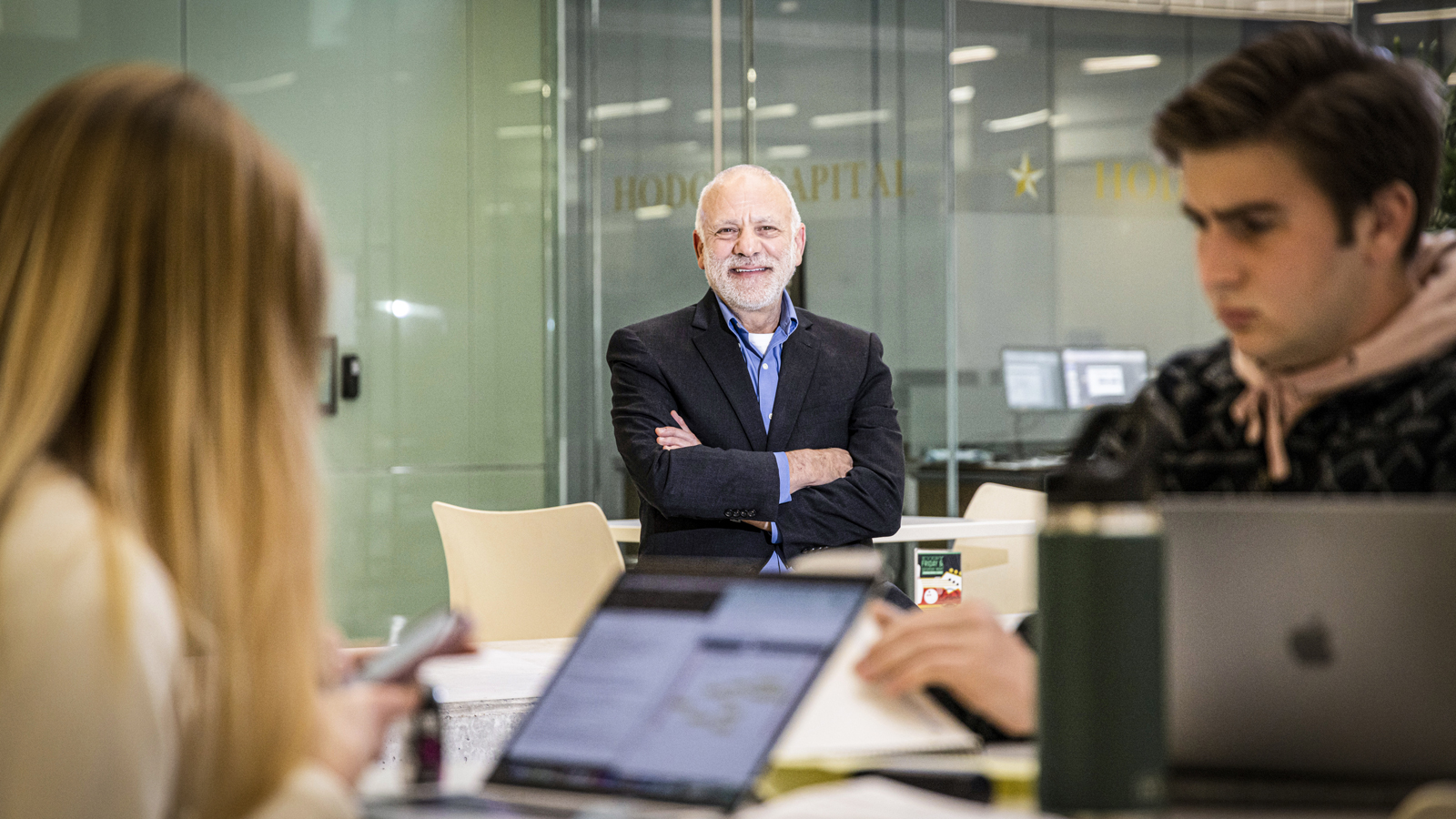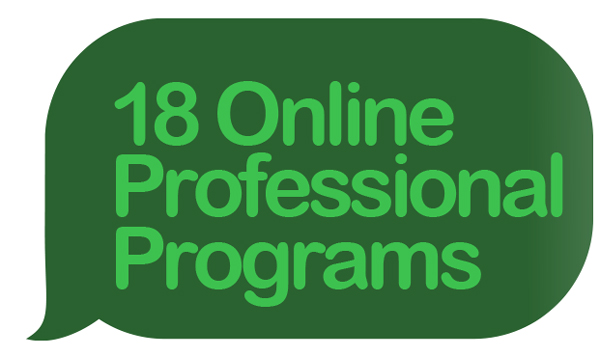Being Baylor Online
Online professional degree programs produce leaders living out the University's mission
The idea of providing a Baylor education to non-residential students is not a new one. In 1903, the University hired Lula Pace, Ph.D., the first woman at Baylor to hold a doctoral degree as a faculty member. As a part of her graduate coursework at the University of Chicago, Pace completed many classes through what at the time was referred to as correspondence learning. Due to her experience in this form of distance learning, Pace was asked to serve as director of correspondence learning at Baylor. She worked to bring a Baylor education to those who, for various reasons, could not attend classes in Waco.
Now, more than a century after remote learning was done by mailing students a packet with an entire semester’s worth of classwork along with the requisite study materials, the world of distance learning has burgeoned, aided by increased demand for graduate and professional degrees and rapid advances in online technology.
Gary Carini, Ph.D., is vice provost for institutional research and professional education at Baylor. In 2014, Carini was associate dean for graduate business programs and a faculty member in Baylor’s Hankamer School of Business. In that role, Carini helped launch and teach in the University’s first online professional degree program — the online M.B.A., which is currently ranked No. 69 out of 328 programs nationwide in U.S. News and World Report’s Best Online M.B.A. Programs.
“Prior to when we began developing the online M.B.A., my personal perspective was online learning was something less than in-class, face-to-face instruction,” Carini says. “Technology was driving the instructor. Faculty had to conform to the technology and its whims, which felt really constraining rather than enabling.”
“The University saw an opportunity to leverage our programs that have stellar reputations and create even more offerings to help meet the demand for post-graduate education at Baylor.”
The pendulum quickly swung in the other direction as the technology became subordinate to the instructor, offering greater tools for communication and improving the connectedness between faculty and students.
“As the technology improved, I could share with my faculty that we don’t have to conform to this constraining technology,” Carini says. “It assists us in our craft, in our expertise, in our capabilities of teaching content in the way we want to.”
Master of Science, Communication Sciences and Disorders Master of Public Health Doctor of Physical Therapy Doctor of Occupational Therapy Louise Herrington School of Nursing
School of Education
Baylor Law
College of Arts & Sciences
Hankamer School of Business
School of Engineering and Computer Science
Diana R. Garland School of Social Work
Doctor of Nursing Practice, Adult-Gerontology Acute Care Nurse Practitioner
Doctor of Nursing Practice, Executive Nurse Leadership
Doctor of Nursing Practice, Family Nurse Practitioner
Doctor of Nursing Practice, Neonatal Nurse Practitioner
Doctor of Nursing Practice, Nurse-Midwifery
Doctor of Nursing Practice, Pediatric Nurse Practitioner
Master of Arts, School Leadership
Doctor of Education, Learning and Organizational Change
Master of Laws, Litigation Management
Master of Arts, Journalism
Master of Business Administration
Master of Science, Computer Science
Master of Social Work
Doctor of Philosophy in Social Work
With connection to and mentorship from top-ranked faculty as one of the hallmarks of the Baylor experience, the advances in technology and success of the online M.B.A. program opened doors for the University to develop more online professional programs. Shortly after the launch of the online M.B.A., Baylor Law School approached Carini to create a post-Juris Doctor hybrid program that would offer a master’s in law with a business analytics component.
“I was really fascinated by that because we now had an opportunity in this space as a hybrid program, which included online and face-to-face instruction, to join two nationally ranked schools and their faculty expertise to create the L.L.M.,” Carini says. “The University saw an opportunity to leverage our programs that have stellar reputations and create even more offerings to help meet the demand for postgraduate education at Baylor.”
Baylor’s Master of Science in communication sciences and disorders, Master of Social Work, Doctor of Education in learning and organizational change, Doctor of Physical Therapy and Doctor of Nursing Practice are a few of the additional offerings that developed in the year following and emerged as distinctive degree programs in the marketplace.
“What we do that a lot of programs don’t do is have our full-time faculty teaching on campus and online, and I think it’s a differentiator for us,” Carini says. “Students have direct access to these faculty, who are experts in their fields. They can correspond with us and reach us through a variety of means. Students have attributed their high degrees of satisfaction with their experience because of this connectedness.”
The student services afforded to Baylor’s online graduate students also help differentiate the Baylor online educational experience. Students in these programs have full access to library resources with Baylor’s electronic library, cited as one of the nation’s best; University Writing Center, offering personal consulting in all areas of writing and composing at any stage of the writing process; and telehealth services available to all Baylor students for their physical and mental health needs. They are also connected to a team of professionals in Waco who shepherd them through their Baylor journey.
Sandy Bennett, Ph.D., is assistant vice provost for graduate professional education. She says her team is dedicated to thinking about the student experience and how students enrolled in the online graduate programs access Baylor’s campus in the online space.
“In a sense, we take them from the application all the way through to graduation,” Bennett says. “As a result, we have good retention and graduation rates out of most of these programs. Once students are admitted, we work really hard to keep them in their programs and meet them where they are to provide them help and services aligned with what they would receive if they were on campus.”
Across Baylor’s 18 online professional programs, there is typically an intentional cohort model to help further foster a connectivity in line with what students would experience through Baylor’s residential programs.
“We find a high attendance of our online students at commencement ceremonies because they want to see the faculty and the online community that they’ve been a part of — their fellow students and the staff that has worked with them to achieve success,” Bennett says. “We have some remarkable students with amazing stories whose love for each other and for Baylor is evident when they walk across the graduation stage.”
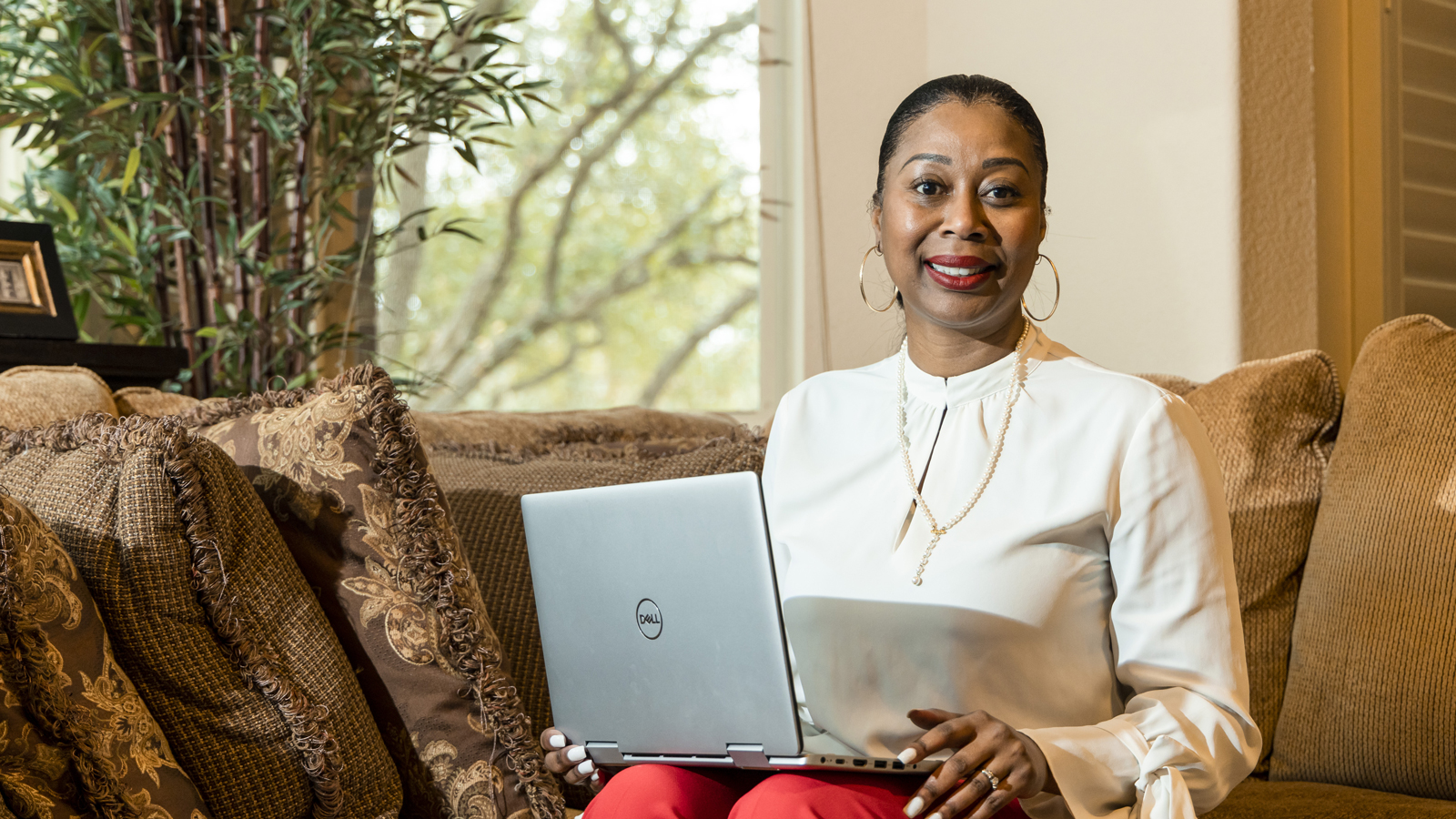
Natalie Nichols, doctoral candidate in Baylor’s Doctor of Education
Strength in Community
Natalie Nichols, Felicia Turner and Sarah Ruff, B.S. ’04, are doctoral candidates in Baylor’s Doctor of Education in learning and organizational change program and are on track to graduate in May. On paper, they do not appear to have a lot in common outside of their general interest in educational leadership and their individual compelling stories. Together, however, they form a trio known among their cohort as the “G.I. Janes” — a reference to the 1997 film starring Demi Moore. The moniker represents their individual journeys to Baylor and the perseverance, fortitude and female empowerment they’ve identified as key to their success as leaders while pursuing their doctorates.
Nichols is a first-generation college student from Cedar Park, Texas. She began her career in the military and completed her undergraduate education while enlisted — taking classes while deployed in Bosnia. She began her post-military career as a K-12 teacher and eventually climbed the ranks as a principal and superintendent. After initially pursuing a doctorate at another institution, Nichols searched for a program that was a better overall fit and offered more resources, connection and support.
“I knew that Baylor has a great reputation and I would get a quality education, but I also realized what I really truly needed was that sense of community,” Nichols says. “Getting a doctorate is physically, emotionally and mentally demanding. I wanted to have that feeling of community and friendship and closeness around me with both my peers and my teachers as I was going through this.”
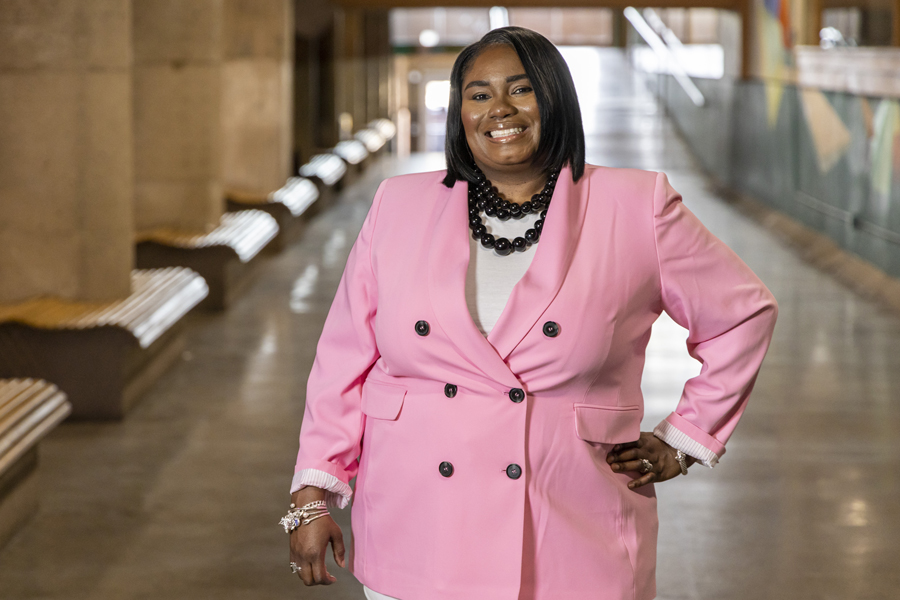
Felicia Turner, doctoral candidate in Baylor’s Doctor of Education
Unlike Nichols, Turner always had Baylor on her short list for postgraduate education, thinking she would enroll in Baylor Law. However, her career took her down another path as an educator for more than 20 years. Turner lives in Dallas and is national director of implementation and professional learning at the Successful Practices Network, a nonprofit organization specializing in dropout prevention, trauma skills, career and technical education, and literacy.
“I found myself in some positions where I had years of experience doing something, but a doctoral degree was the only thing that I lacked for promotion,” Turner says. “There really was no question about where I was going to go because I’d always wanted to be a Baylor Bear.”
Ruff is director of instructional leadership and curriculum on the Fort Peck Indian Reservation in Montana. She is the farthest from campus but was likely the most familiar with the University when it came time to choosing a program for her doctoral work.
“Those moments that I remember as an undergrad were really important to me, and they were part of my Baylor experience,” Ruff says. “I didn’t have that same connection during my master’s program at another school. When I was looking at programs again, I wanted the flexibility of being able to do my work from anywhere. I also wanted that ability to have a really great relationship with our faculty and staff as well as with my other cohort members, and I knew I’d get that at Baylor.”
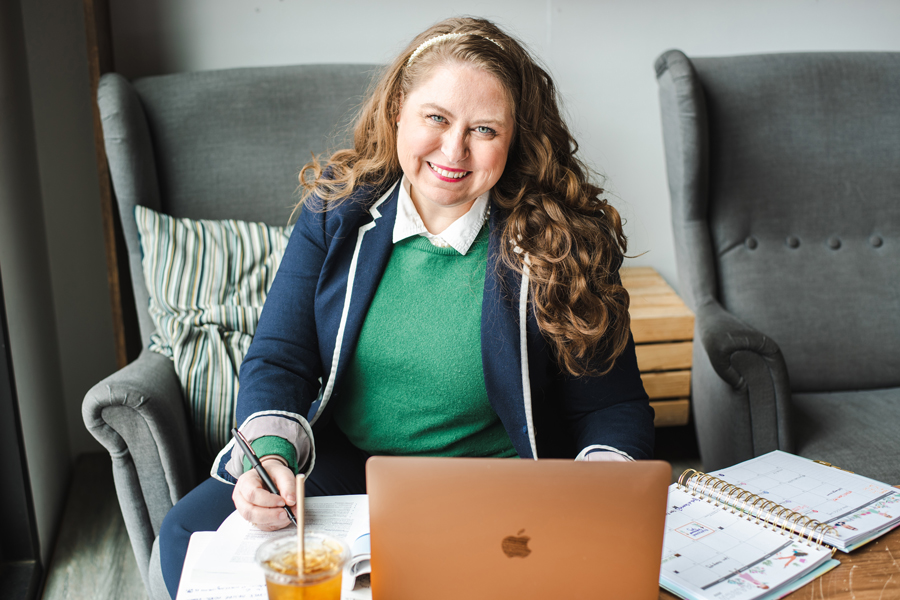
Sarah Ruff, B.S. ’04, doctoral candidate in Baylor’s Doctor of Education
Once they were accepted into Baylor’s third Doctor of Education in leadership and organizational change cohort, Nichols brought them together to form a group that would be the foundation for the transformational community they have experienced throughout the three-year program. Nichols was inspired by her professors and the student support professionals who repeatedly emphasized that community was at the heart of the program.
“As the professors and everyone were talking about this community, I began to pay attention to the people in my cohort. I love to people watch, to listen to them and listen to their stories,” Nichols says. “Sarah and Felicia had never had classes together, but I had classes with each of them. There were specific reasons that I emailed them and asked them to form a group. They love to learn, they came to class prepared, and they did their work. I decided that the three of us would form the perfect triad because I knew we would help strengthen each other.”
The trio has supported each other through their classwork, their research and, ultimately, their dissertation process. They also have found ways to be there for each other spiritually and emotionally while avoiding the tendency to compete that some encounter in other academically rigorous programs.
“We’re seeing each other through everything that comes to us personally, professionally and spiritually,” Turner says. “At the end of the day, we’re still wearing our green and gold proudly and staying true to what we’ve asked God for in all of those things. That’s where we truly are ‘G.I. Janes’ because this program has been our training ground, and no one in the group is going to ring the bell to give up or quit.”
Faith in Action
Baylor’s Christian mission was one of the key factors that attracted Dillon Marks to the University’s hybrid online and in-person Doctor of Physical Therapy program. Marks grew up in Belgrade, Montana, where he was the quarterback of his high school football team and admittedly more interested in sports than his faith. As an undergraduate at Montana State University in Bozeman, Marks became a Christian after reconnecting with his friend and hometown football hero Matt Thibault, who was the pastor at a local church.
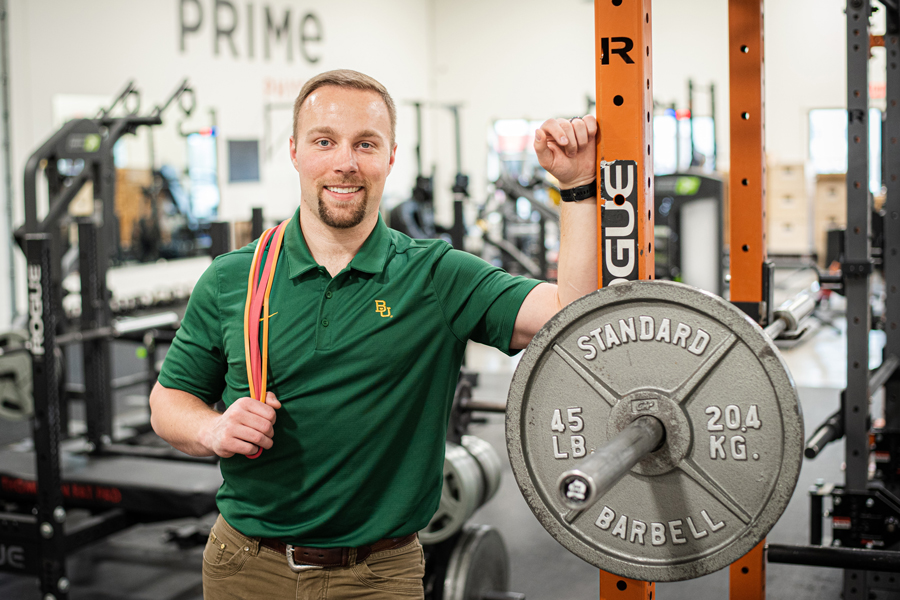
Baylor’s Christian mission was one of the key factors that attracted Dillon Marks to the University’s hybrid online and in-person Doctor of Physical Therapy program.
“That was the first time in my life, despite going to a church growing up, that I truly heard the gospel,” Marks says. “I had to wrestle with my flesh and my sin, what I really wanted to do on a horizontal level and what God desired for me on a vertical level.”
Marks gave his life to the Lord during the spring of his freshman year. Now, as a DPT student at Baylor serving as one of the chaplains for his cohort, he is leaning into his faith and vocation.
“There are some unique opportunities — almost counseling-type opportunities — that come up within PT because we’re not just working with a person who has shoulder pain, for example,” he says. “That person is somebody who has a life and happens to have shoulder pain that might be keeping them from doing what they love. That affects their quality of life and so forth. We can really help on a physical and spiritual level.”
Marks plans to return to Bozeman when he graduates in December and join a physical therapy practice where he interned before starting Baylor’s doctoral program.
“I think of the words of Jesus, that it’s not those who are healthy that need the physician, but those who are sick,” Marks says. “As a Christian man moving forward professionally, I see how I can help physically and help people along in terms of their spiritual development wherever they are in that journey.”
Likewise, Carini appreciates the way in which Baylor’s online graduate programs extend the University’s reach. He references what President Linda A. Livingstone, Ph.D., said in her inaugural address.
“She said that the world needs a Baylor that enables people to pursue the careers they believe God has laid on their hearts in order to serve Him and change the world for the better,” Carini says. “We get to be a part of connecting Baylor to the world through these online professional programs.”
